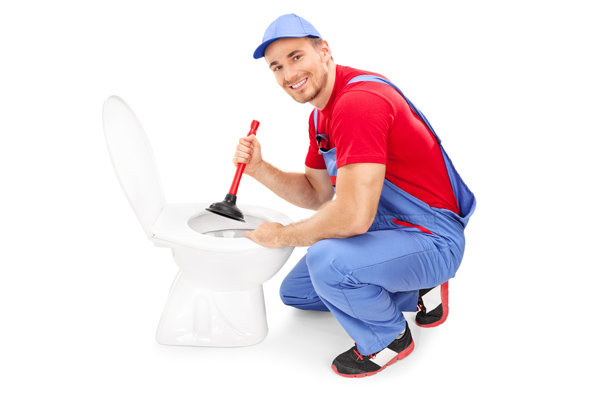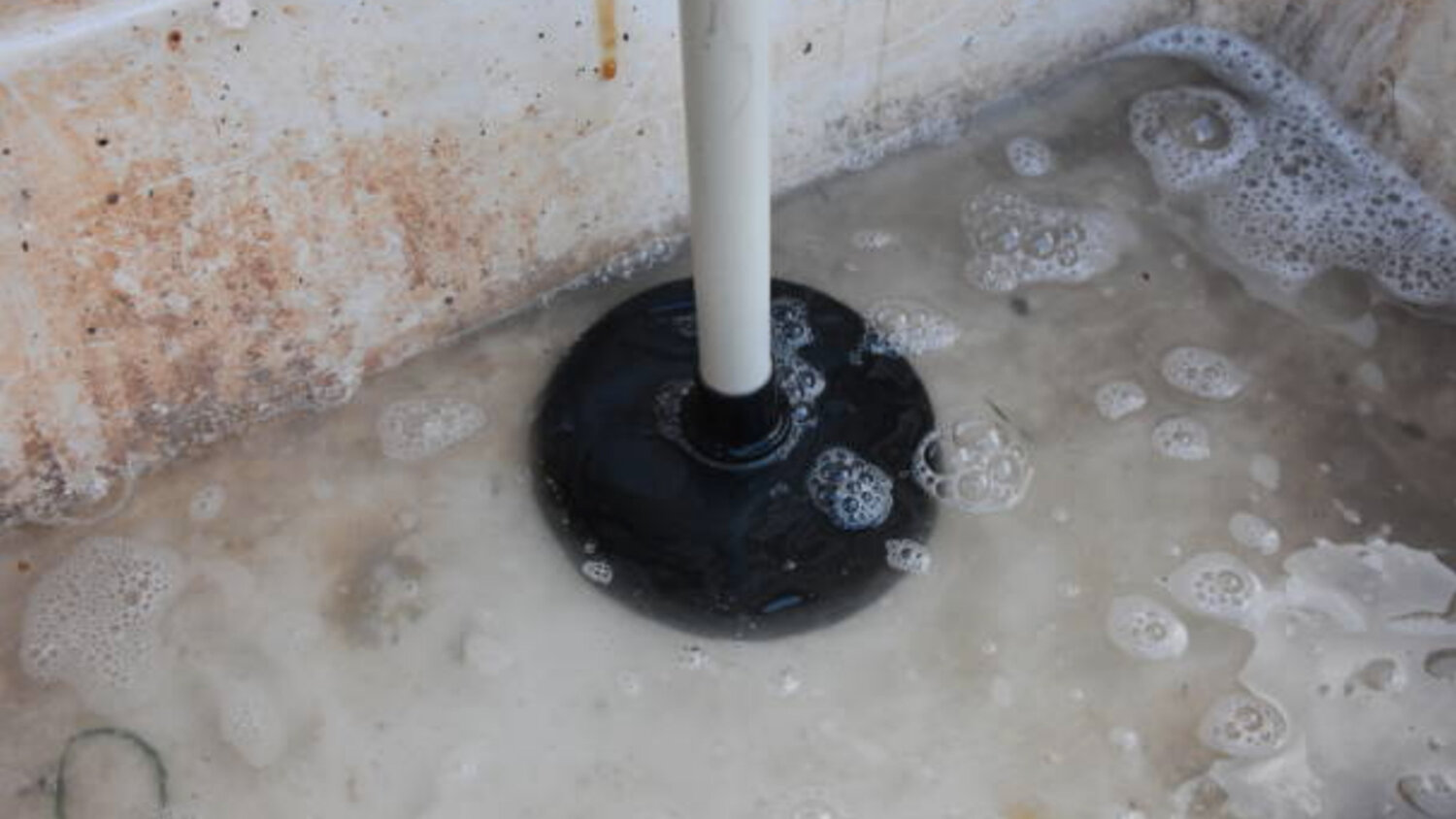Using Plunger and Drain Cleaners: Expert Tips
Using Plunger and Drain Cleaners: Expert Tips
Blog Article
The article further down involving A Guide to Plungers (and How to Use Them) is pretty much fascinating. Read it yourself and see what you think about it.

Introduction
Correct maintenance of household drains is necessary for preventing obstructions and making sure smooth water flow. One of the key tools in every property owner's toolkit is the bettor, together with various drain cleansers developed to take on stubborn blockages properly. This write-up explores just how to use plungers and drainpipe cleaners successfully to keep your drains moving freely.
Section 1: Comprehending Plungers
Types of Plungers
There are a number of kinds of bettors available, each made for various types of drains pipes and blocks. The most typical types include cup bettors, flange plungers, and accordion plungers.
Exactly How Plungers Work
Plungers work with the principle of creating pressure and suction to remove blockages. When effectively applied over a drain, they produce a vacuum cleaner that can take out particles or separate clogs.
Choosing the Right Bettor
Picking the best plunger depends on the sort of drain and the nature of the obstruction. Cup bettors are suitable for sinks and tubs, while flange plungers are better matched for bathrooms due to their layout.
Typical Mistakes with Plungers
Staying clear of these blunders guarantees reliable plunging: improper seal around the drain, insufficient force, and unclear surrounding debris.
Area 2: Using Plungers Properly
Prep work
Prior to diving, make certain the plunger covers the drain completely and develops a tight seal. Clear any kind of noticeable particles around the drainpipe opening.
Strategy
Start with mild diving movements to develop suction. Increase pressure progressively, using a steady rhythm. Repeat as required until the drainpipe gets rid of.
Repairing Tips
If diving does not function, try adjusting the seal, applying oil jelly for a much better seal, or utilizing a various kind of plunger.
Section 3: Understanding Drainpipe Cleansers
Types of Drain Cleansers
Drain cleansers can be chemical or enzymatic. Chemical cleaners make use of solid chemicals to liquify clogs, while chemical cleansers make use of natural enzymes to break down organic matter.
How Drainpipe Cleaning Company Work
Chemical cleansers respond with blockages to liquify them, while enzymatic cleansers break down organic products like hair and grease without hurting pipelines.
Security Factors to consider
Constantly put on gloves and eye protection when using chemical drain cleaners. Guarantee ample ventilation and follow producer instructions meticulously.
Eco-Friendly Alternatives
Consider utilizing vinegar and baking soda or enzyme-based cleaners for eco-friendly choices that are more secure for pipes and the setting.
Area 4: Utilizing Drainpipe Cleaners Properly
Application Techniques
Put chemical cleansers directly into the drain opening. Allow them to benefit the advised time before flushing with hot water. Enzymatic cleansers ought to sit overnight.
Safety measures
Avoid blending different types of cleaners, as this can generate harmful fumes. Never use chemical cleansers together with a plunger, as splashing can take place.
Managing Stubborn Blockages
For persistent obstructions, think about using a plumbing snake or calling a professional plumbing to avoid damages to pipelines.
Verdict
In conclusion, recognizing just how to make use of plungers and drain cleaners efficiently is crucial for preserving healthy and balanced plumbing systems. By picking the right devices and methods, home owners can deal with small blockages and stop major plumbing concerns down the line.
5 Steps on How to Use a Plunger Effectively
Creating a Seal: Place the rubber cup of the plunger firmly over the toilet drain hole to create an airtight seal. This seal is crucial to prevent air from escaping and ensure effective plunging.
Plunge Gently: Gently press the plunger down to compress the air inside without causing splashing. This careful action sets the stage for effective unclogging without creating a mess.
Maintaining Pressure: Consistently apply pressure to the plunger while pushing and pulling it up and down. This sustained pressure generates the force needed to dislodge the clog.
Breaking the Clog: Continue plunging until you feel the clog release. Look for the water to start draining, indicating successful removal of the blockage.
Flushing and Cleaning: After clearing the clog, flush the toilet to confirm it's working properly. Clean the plunger with warm, soapy water and disinfect it for future use to maintain hygiene.
Additional Tips on How to Correctly Use a Plunger
if you encounter resistance, add some water to the bowl to create better suction;
check the plunger for any rubber cracks to ensure it's in good condition;
exercise patience and persistence, as certain clogs might need multiple attempts.
Mistakes to Avoid when Using Toilet Plunger
avoid using excessive force, as it may damage the toilet;
don't rush the process; take your time to ensure a proper seal and pressure;
never use a plunger if you've recently used chemical drain cleaners
Conclusion
Mastering the art of how to properly use a plunger is a valuable skill for every homeowner. By employing the correct techniques, you can effectively address clogs and ensure your toilet functions smoothly. Patience, persistence, and proactive in maintaining your plunger's hygiene are key to success in this endeavor.
Armed with these skills and principles, you can confidently handle plumbing issues as they arise, promoting a well-functioning and hygienic home environment.
https://homealliance.com/blogs/how-to-effectively-use-a-plunger-the-ultimate-guide

Application Techniques
Put chemical cleansers directly into the drain opening. Allow them to benefit the advised time before flushing with hot water. Enzymatic cleansers ought to sit overnight.
Safety measures
Avoid blending different types of cleaners, as this can generate harmful fumes. Never use chemical cleansers together with a plunger, as splashing can take place.
Managing Stubborn Blockages
For persistent obstructions, think about using a plumbing snake or calling a professional plumbing to avoid damages to pipelines.
Verdict
In conclusion, recognizing just how to make use of plungers and drain cleaners efficiently is crucial for preserving healthy and balanced plumbing systems. By picking the right devices and methods, home owners can deal with small blockages and stop major plumbing concerns down the line.
5 Steps on How to Use a Plunger Effectively
Creating a Seal: Place the rubber cup of the plunger firmly over the toilet drain hole to create an airtight seal. This seal is crucial to prevent air from escaping and ensure effective plunging. Plunge Gently: Gently press the plunger down to compress the air inside without causing splashing. This careful action sets the stage for effective unclogging without creating a mess. Maintaining Pressure: Consistently apply pressure to the plunger while pushing and pulling it up and down. This sustained pressure generates the force needed to dislodge the clog. Breaking the Clog: Continue plunging until you feel the clog release. Look for the water to start draining, indicating successful removal of the blockage. Flushing and Cleaning: After clearing the clog, flush the toilet to confirm it's working properly. Clean the plunger with warm, soapy water and disinfect it for future use to maintain hygiene. Additional Tips on How to Correctly Use a Plunger
if you encounter resistance, add some water to the bowl to create better suction; check the plunger for any rubber cracks to ensure it's in good condition; exercise patience and persistence, as certain clogs might need multiple attempts. Mistakes to Avoid when Using Toilet Plunger
avoid using excessive force, as it may damage the toilet; don't rush the process; take your time to ensure a proper seal and pressure; never use a plunger if you've recently used chemical drain cleaners Conclusion
Mastering the art of how to properly use a plunger is a valuable skill for every homeowner. By employing the correct techniques, you can effectively address clogs and ensure your toilet functions smoothly. Patience, persistence, and proactive in maintaining your plunger's hygiene are key to success in this endeavor.
Armed with these skills and principles, you can confidently handle plumbing issues as they arise, promoting a well-functioning and hygienic home environment.
https://homealliance.com/blogs/how-to-effectively-use-a-plunger-the-ultimate-guide

I ran across that content about while doing a lookup on the internet. Do you know someone else who is in the market for the niche? Take a moment to share it. Thanks a lot for your time invested reading it.
Call Today Report this page